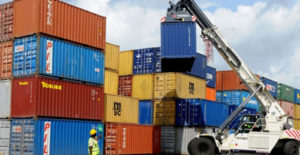 These are some general guides to exporting from Africa. The regulatory requirements change from time to time and vary from country to country. Please confirm current information from the country ministry of Trade or responsible agency as needed.
These are some general guides to exporting from Africa. The regulatory requirements change from time to time and vary from country to country. Please confirm current information from the country ministry of Trade or responsible agency as needed.
Summary of Export procedures, not necessarily in this order written.
- Obtaining Export License: Exporters must be registered with Ministry of Trade and obtain export license in the country of origin.
- Acknowledgement of receipt of the Order from Buyer: This involves the production of internal instructions by the exporter on the works, production and preparation of the goods for export order.
- Finalization of Export Contract: Finalize the export contract stipulating the method of payment for the export consignment and submit a copy to the respective Commercial Bank by any of such methods as hand delivery, fax, email or post. Commercial Banks require six copies of letter of credit, and five copies of advance payment, cash against documents, and consignment note each.
- Application to Export permit: Register the export order with a Commercial Bank who will in turn issue the export permit for the particular consignment. All sorts of exports except coffee have to be registered with any of the Commercial Banks.
- Registration of Export Consignment: Fill in the Customs Declaration Annex form issued by the Commercial Bank and submit to the International/Foreign Business Department of the Bank.
- Application for Quality Testing and Certification: When export products are ready, plan for suitable packaging and apply to the Quality and Standards Authority of the country for quality testing and acquire the Export Authorization Certificate.
- Compliance with Rules of Origin: Fill in the certificate of origin issued by the authorized agency, usually accredited Chambers of Commerce, in order to qualify under the preferential tariff treatments.
- Compliance with Tariff Schemes: Fill in the special movement forms or certificates issued by the Customs Authority. Currently, the special movement certificates include the EURI movement certificate that is required by the European Union Countries, and the form A for the Generalized System of Preferences-GSP Form A required by its member countries.
- Insurance of Export Cargo: Insure the export cargo and acquire the insurance certificate or policy document issued by an insurance company.
- Customs Declaration: To avoid costly delays, the exporter declares all facts about the export consignment, and all supporting original documents should be forwarded to the Customs Clearing Agents to enable customs formalities and authorization of the dispatch of the export goods. Accordingly, the exporter must hand over the Export Permit, the copy of the Customs Declaration Annex form, the country Customs Declaration form, the Certificate of Origin, and the special movement forms/certificates (the EURI Movement Certificate and the GSP form A) to the clearing agents.
- Movement of Export Cargo: To facilitate the movement of goods, transport documents should be acquired from the respective carrier. Although the type of transport documents depends on the mode of transport, the documents should be completed and signed by the carrier or its representatives.
For detailed export guide information contact the National Chamber of Commerce or Ministry of Trade and Industry in the country of interest. Your may also contact info@usafricatrade.org for special assistance.